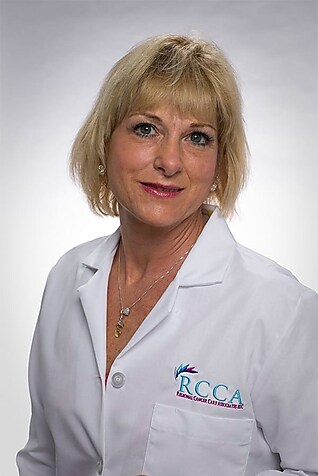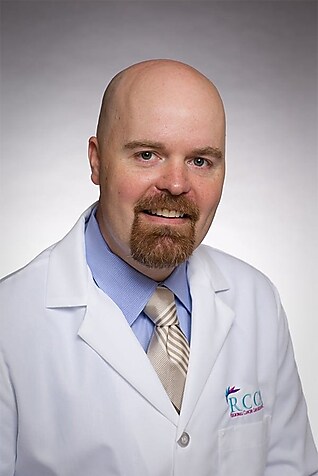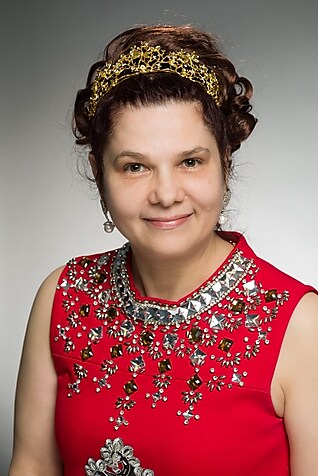
Enabling people with cancer to participate in clinical trials without having to travel to major academic medical centers is critical to achieving further gains against the deadly disease and to improving individual patients’ survival and quality of life.
That was the message four oncologists delivered at a recent virtual Clinical Retreat for cancer physicians organized by Regional Cancer Care Associates, LLC, or RCCA, one of the nation’s largest networks of oncology specialists. During a panel discussion, the physicians stressed the importance of making clinical trials an integral part of oncology care in the community-based setting — where the overwhelming majority of people with cancer are treated — and highlighted the strategies that have made RCCA a pioneer in this effort.

“Clinical trials are essential in terms of keeping us on the cutting edge,” Frederick P. Smith, MD, said of the role studies play in ensuring that community-based offices are offering patients the latest in cancer care. Dr. Smith, a board-certified medical oncologist who sees patients at RCCA’s Chevy Chase, MD center, added that as the pace of advances against cancer increases, receiving care from practices aware of, contributing to, and offering clinical trials — as RCCA members are endeavoring to do — should be pursued in order for patients to have the fullest range of treatment options.

Nandini Ignatius, MD, a board-certified medical oncologist and hematologist who sees patients at RCCA’s offices in Old Bridge, Freehold and Holmdel, noted that she routinely reviews the list of clinical trials in which RCCA participates to see which might be of benefit to particular patients in her care. “It’s important to recognize which clinical trials fit for your patients,” Dr. Ignatius said. She added that whether using long-established cancer therapies or suggesting that a patient enter a study of a promising new treatment, rigorous attention to the specifics of a patient’s cancer, overall health, and preferences is paramount.

Julianne W. Childs, DO, a board-certified medical oncologist and hematologist who sees patients at RCCA’s Cape May Courthouse and Marmora offices, said that because community-based oncologists treat a wide variety of cancers, it is vital for them to have access to up-to-date information on the latest trials evaluating treatment strategies across a broad range of solid tumor cancers and blood-based malignancies.
With more than 300 studies under way in the RCCA network of more than 20 care centers in New Jersey, Connecticut, Maryland, Pennsylvania and the Washington, DC area, RCCA is enhancing the functionality of its clinical trials database and implementing new approaches for physicians and support staff to readily identify potential candidates for different studies.

When a physician determines that a patient meets the inclusion criteria for a study and believes the person could benefit from participating, a shared decision-making approach is key, said Ian Horkheimer, MD, a board-certified medical oncologist and hematologist who practices at RCCA’s Little Silver offices. Dr. Horkheimer added that patients can have widely varying attitudes toward clinical trials, and that it is incumbent on the physician to share detailed information on the potential benefits and risks of joining a trial, thoroughly explain the design and goals of the study, address the patient’s questions and concerns, and then respect the patient’s decision. “A lot of patients are very savvy” about clinical trials, said the cancer specialist. “They’re on the internet and looking for options, so discussing clinical trials with them is always a back and forth,” while others may be reluctant to join a study.
Echoing Dr. Horkheimer’s comments, Dr. Ignatius said, “We have to understand how patients view clinical trials” and then address their perceptions and concerns.
Two Common Misconceptions About Clinical Trials Of Cancer Therapies
The RCCA physicians said that patients sometimes can be reluctant to join a trial due to misunderstandings about studies in which participants are assigned in randomized fashion to receive either the treatment being evaluated or a placebo. Often, they said, patients fear that being assigned to the placebo arm means that they would have to stop receiving their current cancer therapy and that they will never have access to the treatment being studied. In actuality, they explained, almost all trials of new cancer therapeutics involve taking those agents or a placebo in addition to — not instead of — a person’s standard treatments.
Further, they said, many cancer trials include what is called an “open-label extension” in which participants who had received placebo during the main portion of the study can receive the investigational agent during an ongoing portion of the study that assesses long-term outcomes. Additionally, some cancer trials employ a cross-over design, in which one group of patients receives the investigational agent and another group receives placebo for a fixed amount of time, such as 16 or 24 weeks, before the groups switch, with the first now receiving placebo and the second receiving the treatment being evaluated.

Iuliana Shapira, MD, a board-certified medical oncologist and hematologist who serves as RCCA’s chief medical officer, introduced her colleagues who served on the clinical trials discussion panel. “A remarkable number of new cancer therapies have become available in the last five years, and those treatments have had a dramatic impact in terms of saving lives, extending lives, and improving quality of life, providing more cause for hope than ever before,” she said. “Each one of those therapies is available today because courageous patients, acting in close consultation with their physicians, decided to be ‘part of the solution’ and participated in a clinical trial.”
Dr. Shapira, who came to RCCA after many years of serving in top research and clinical positions at academic medical centers, added, “I joined RCCA because I admired — and wanted to help further enhance — its track record of providing cancer patients with the latest in cutting-edge care in a compassionate manner and convenient setting close to those people’s homes. Offering ready access to clinical trials is a major component of our commitment to ensuring that our patients receive the latest cancer therapeutics in a highly individualized, evidence-based manner, and I look forward to expanding our clinical trials program in 2021.”
*****
With more than 80 cancer specialists at 20-plus community-based care centers in Connecticut, Maryland, New Jersey and the Washington, DC area, RCCA provides care to more than 22,000 new patients and more than 225,000 established patients each year. It offers those patients immunotherapy, targeted treatment, cell-based therapy, and other cutting-edge treatments and diagnostic modalities, as well as access to clinical trials.
To learn more about RCCA or to schedule an appointment, call (844) 928-0089 or visit www.RCCA.com.
